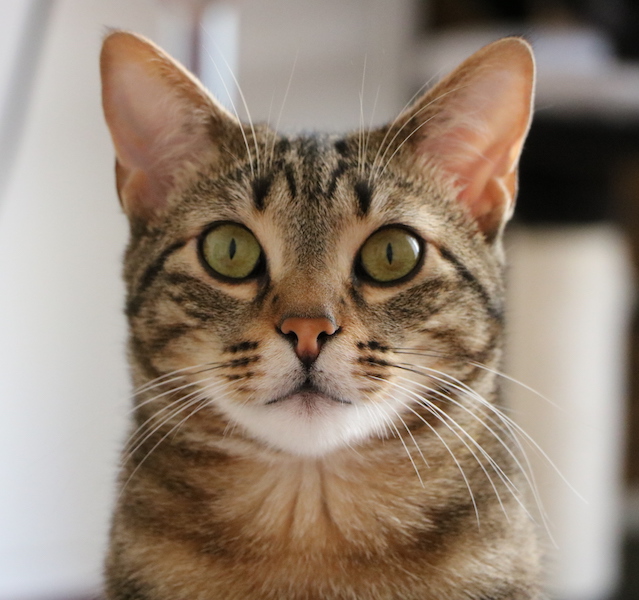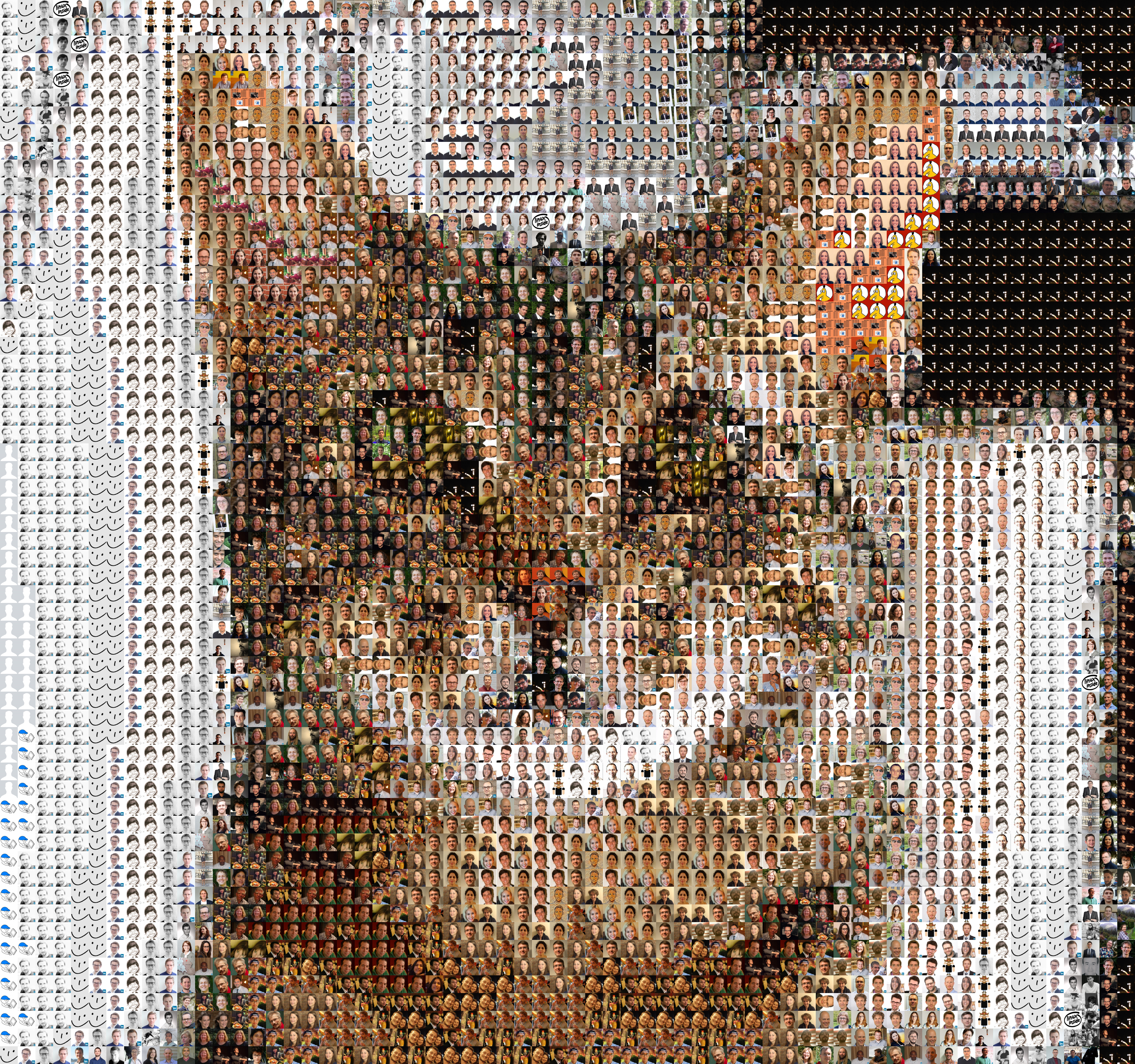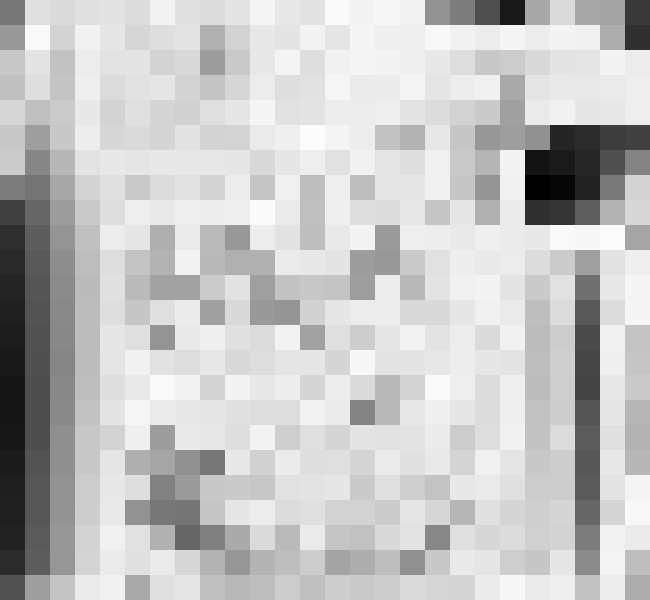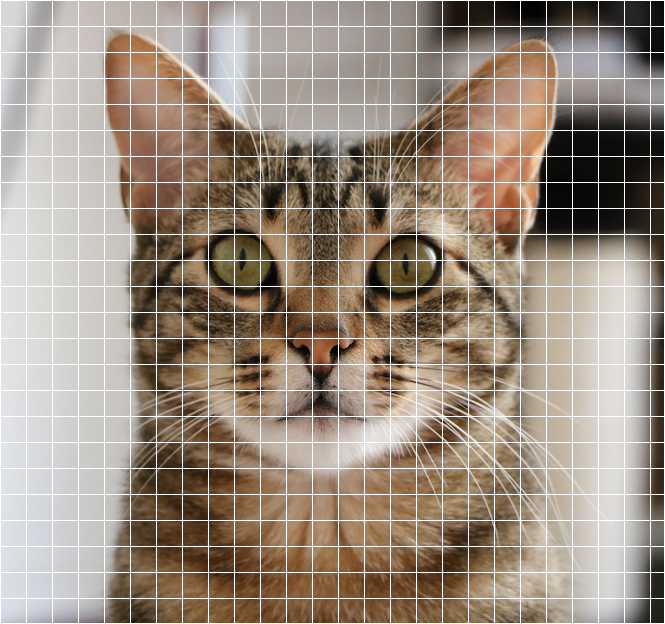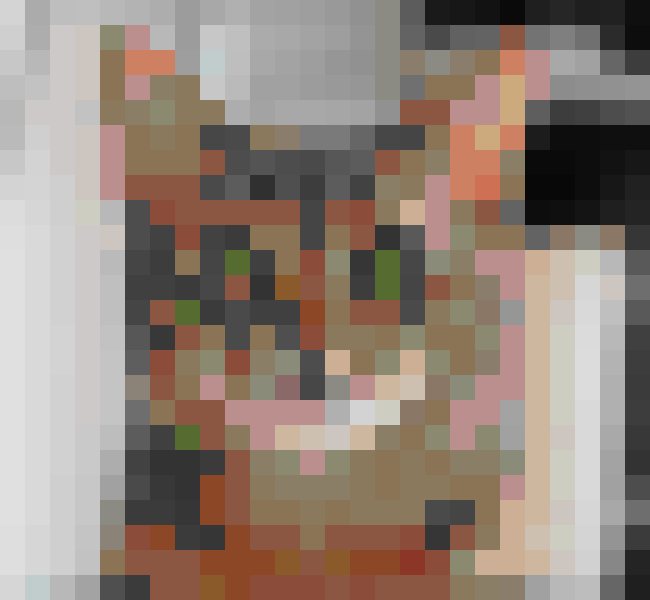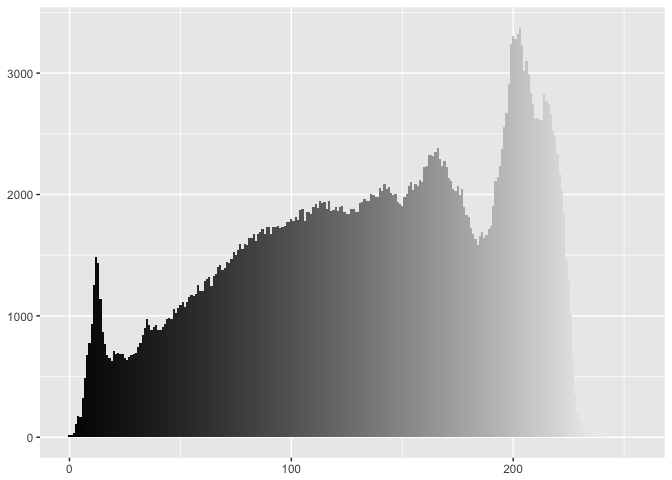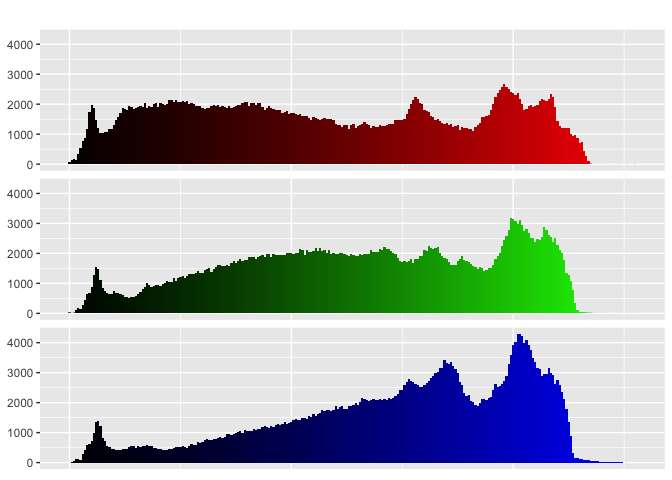Meet Tigrou
library(collage)
library(magick)
tigrou <- image_read( system.file("tigrou", "tigrou.jpg", package = "collage") )collage
Tigrou with every 25x25 replaced by another kitty
collage( tigrou, tiles = kittens, size = 25)
#> format width height colorspace filesize
#> 1 png 1300 1200 sRGB 0with every 10x10 replaced by a useR 2017 attendee:
collage( tigrou, tiles = useR2017, size = 10)
#> format width height colorspace filesize
#> 1 png 3200 3000 sRGB 0collage_quality
A measure of the quality of the tiles.
collage_quality( tigrou, tiles = kittens, size = 25)
#> format width height colorspace filesize
#> 1 png 650 600 sRGB 0collage_grid
Showing the grid
collage_grid( tigrou, size = 25)
#> format width height colorspace filesize
#> 1 png 665 624 sRGB 0tiles
The tiles argument of these functions expect a tibble similar to the kittens (or puppies) that is shipped with the package:
kittens
#> # A tibble: 400 x 5
#> red green blue alpha tile
#> <raw> <raw> <raw> <raw> <list>
#> 1 81 4e 50 ff <S3: bitmap>
#> 2 b5 a9 a8 ff <S3: bitmap>
#> 3 ad a4 9c ff <S3: bitmap>
#> 4 a6 99 89 ff <S3: bitmap>
#> 5 a4 69 47 ff <S3: bitmap>
#> 6 cb a9 aa ff <S3: bitmap>
#> 7 82 74 57 ff <S3: bitmap>
#> 8 74 5e 4a ff <S3: bitmap>
#> 9 94 81 8b ff <S3: bitmap>
#> 10 86 85 83 ff <S3: bitmap>
#> # ... with 390 more rows
puppies
#> # A tibble: 400 x 5
#> red green blue alpha tile
#> <raw> <raw> <raw> <raw> <list>
#> 1 96 7b 5f ff <S3: bitmap>
#> 2 71 72 50 ff <S3: bitmap>
#> 3 47 46 43 ff <S3: bitmap>
#> 4 a1 85 70 ff <S3: bitmap>
#> 5 6a 70 74 ff <S3: bitmap>
#> 6 5d 60 53 ff <S3: bitmap>
#> 7 a3 8c 5d ff <S3: bitmap>
#> 8 ac 9d 8b ff <S3: bitmap>
#> 9 79 6f 5d ff <S3: bitmap>
#> 10 70 72 70 ff <S3: bitmap>
#> # ... with 390 more rowsEach row represent a tile, which has a given color (identified by the red, green, blue and alpha columns). The tile column is a list column holding the data for the tiles.
kittens$tile[[1]]
#> 4 channel 50x50 bitmap array: 'bitmap' raw [1:4, 1:50, 1:50] 0d 0f 0e ff ...The tiles function can make one of these tiles tibbles:
files <- list.files( system.file("base", package = "collage"), pattern = "jpg$", full.names = TRUE )
samples <- tiles( files, size = 25 )
samples
#> # A tibble: 54 x 5
#> red green blue alpha tile
#> <raw> <raw> <raw> <raw> <list>
#> 1 90 9c a2 ff <S3: bitmap>
#> 2 d2 ae a5 ff <S3: bitmap>
#> 3 dc aa b6 ff <S3: bitmap>
#> 4 c6 88 95 ff <S3: bitmap>
#> 5 bc 93 ac ff <S3: bitmap>
#> 6 8c 5a 3b ff <S3: bitmap>
#> 7 7c 75 6f ff <S3: bitmap>
#> 8 8b 8d a0 ff <S3: bitmap>
#> 9 82 7a 62 ff <S3: bitmap>
#> 10 a7 b0 8c ff <S3: bitmap>
#> # ... with 44 more rowstiles_mono
The tiles_mono function generates monochromatic tiles. For example, here is Tigrou with each 25x25 square replaced by the closest R color.
rtiles <- tiles_mono(colors())
collage( tigrou, tiles = rtiles, size = 25)
#> format width height colorspace filesize
#> 1 png 650 600 sRGB 0tiles_animals
The tiles_animals function scraps data. For example, the kittens and puppies have been generated with :
kittens <- tiles_animals(what = "bebe,chats", pages = 1:20)
puppies <- tiles_animals(what = "bebe,chiens", pages = 1:20)histograms
Histograms are a tool used in photography to visualise brightness of images. image_histogram_data measures the number of pixels for each tone (from 0 to 255) in a picture.
image_histogram_data(tigrou)
#> # A tibble: 256 x 4
#> tone red green blue
#> <int> <int> <int> <int>
#> 1 0 1 23 77
#> 2 1 4 2 134
#> 3 2 39 15 173
#> 4 3 107 98 147
#> 5 4 130 166 331
#> 6 5 101 137 522
#> 7 6 273 280 757
#> 8 7 425 461 878
#> 9 8 595 636 1157
#> 10 9 620 692 1731
#> # ... with 246 more rowsThen image_histogram_brightness and image_histogram_rgb shows brightness and individual channel histograms:
image_histogram_brightness(tigrou)image_histogram_rgb(tigrou)